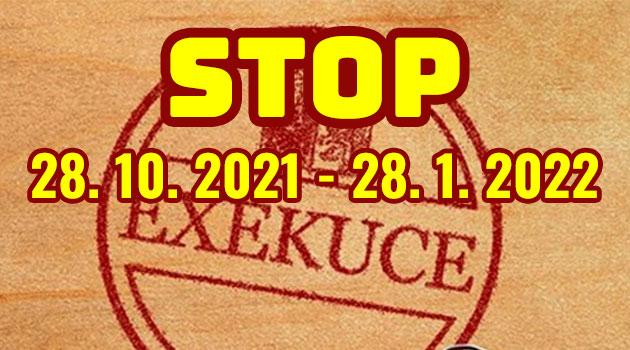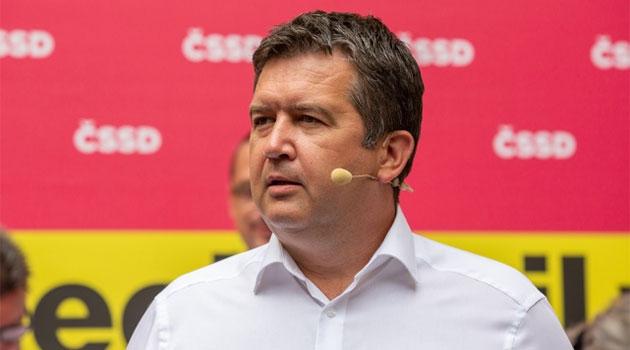Czech authorities to introduce one-time path to debt forgiveness starting this month

The Czech state will be forgiving the interest that has been charged on debt, attorney’s fees related to debt, or penalties charged in relation to debt, all of which are referred to as “accessory charges” to debt, for debtors involved in collections proceedings where the creditor is a public institution, on the condition that the debtor pay off the principal for the original debt to the collections agent in full between 28 October 2021 and 28 January 2022. The measure, called “Summer of Mercy”, was adopted by Parliament in July and will allow creditors to access the revenue owed from bad debts and allow debtors to repay debts that they have failed to repay due to the high cost of the accessory charges.
Tens of thousands of people will have a chance of returning to life as normal again if they manage to resolve their debt. The phrase “Summer of Mercy” references a concept mentioned in the Bible.
In ancient times, such debt forgiveness opportunities were announced once every 50 years, which meant debts were fully forgiven that year. In the Czech case, the “summer” is happening in the autumn and winter of 2021-2022 and does not mean all debts are forgiven, but the disproportionate increases to the amount of the original receivable will be forgiven if the principal is paid in time.
An example of such a debt is the fines charged for riding public transportation without buying a ticket. A locally-levied penalty of CZK 1 500 [EUR 60] for failure to pay that or any other fine, for example, can balloon to as much as CZK 60 000 [EUR 2 400] through other fees, or 40 times the original amount owed.
If a debtor has more than one such fine, then amounts that were negligible, originally, can metastasize into debts the person could never pay off during their entire lifetime. “The Summer of Mercy is a unique opportunity,” Daniel Hůle, a debt expert for the People in Need organization, told Czech Television’s “168 Hours” program.
“In recent years I cannot recall such a possibility for people who decide to resolve their debt and want to do so,” Hůle said. Martin Šimáček of the Institute for Social Inclusion said that “Those who are able to access the aid from the Summer of Mercy are in a trap right now.”
“What they owed the public institutions was a small amount of money, but the accessory charges on that debt were so excessively high as to make it impossible for them to pay off the debt and begin to function normally. The moment they manage that, it essentially means a second chance to function normally and have an income that is standard,” Šimáček said.
“This entire mechanism of indebtedness was supported by the Goverment itself, when its legislation aided this business in indebtedness. Those who today owe tens and hundreds of thousands of crowns in accessory charges began with just small, trivial debts,” Šimáček noted.
“The principal itself was quite a small amount of money. All of this is a burden carried not just by each individual, but by the country as a whole,” Šimáček said.
The condition is that debtors must know how much they owe on the principal and must pay it to the collections agent during the period from October to January, along with a processing fee of CZK 750 plus VAT, or CZK 908 [EUR 35], and the Summer of Mercy only applies to debts owed to public institutions that then hired commercial collections agents to recover what was owed. These could be debts owed to the state itself, to public health insurance, to the private-public ČEZ utility, to the electric company Pražská energetika, to the gas company Pražská plynárenská, to the Mostecká bytová management company for housing owned by the Most municipality, other companies majority-owned by the state, public transportation companies established by municipalities, or directly to local authorities for rent, waste disposal services and dog registration.
Instructions for applying
1. Figure out how much of the principal you still owe the collections agent and inform them of your intention to take advantage of the Summer of Mercy. This has to be done as soon as possible, especially by those with more than one collections proceeding underway. It can take as long as 30 days to receive a reply from the collections agent. Contact the collections agent by registered letter and ask for the actual amount still owed on the principal to be calculated.
2. Once you know the amount of the unpaid principal, pay it to the collections agent’s account. You must also pay the one-time fee of CZK 908 [EUR 35]. In addition to using the correct variable symbol when making this payment, it is necessary to write “Summer of Mercy” in the notes accompanying the payment. The collections agent’s account must show the payment has arrived between 28 October 2021 and 28 January 2022.
3. Lastly, verify whether the payment went through. Collections agents are obligated, on the basis of payment rendered, to issue a decision emancipating the debtor from the obligation to pay the rest of the amount owed (above and beyond the principal).
